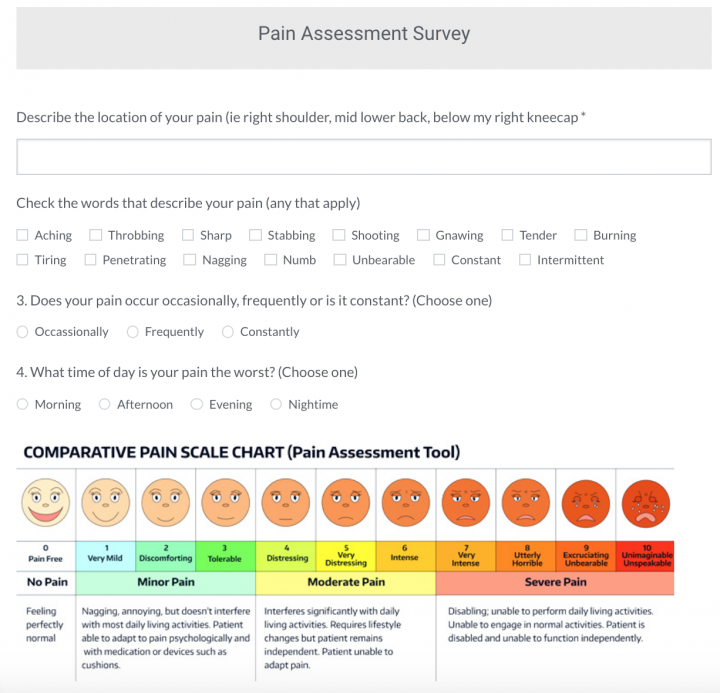It’s unlikely you’ll ever hear a doctor advocating for patients to self-diagnose and seek care over the internet. From misdiagnoses to search results that do more frightening than enlightening, the internet is chock full of inaccurate information that a real doctor (with an actual medical degree) will have to spend time disproving. But that won’t stop people from continually consulting “Dr. Google” from the convenience of their phones. So you may as well engage them while they’re there.Content marketing provides an excellent opportunity for hospitals, doctor’s offices, and other healthcare organizations to educate people, build engagement in the community, and generate leads for new patients in the process. Here are a few healthcare content marketing ideas to help you better engage with patients instead of waiting for them to come to you:
1. Blog Posts on Relevant Health Conditions
Perhaps the most common method of content marketing, blog posts allow you to attract new visitors to your site (and your office) with relevant medical information. Pick a topic that’s pertinent to your organization (e.g., dentist offices could write about everything from flossing techniques to the best foods for building strong teeth), have a qualified expert write about it, and post it to your site. But beware: people (and Google!) can spot disingenuous content from a mile away. If you don’t have enough educational content to share, you’re not proficient in writing, or you plan on copying and pasting from other sources, you should consider another content marketing route.
2. Health Assessments and Quizzes
People want quick and easy answers when they’re searching online. A pain quiz/assessment allows them to take inventory of all their symptoms and quickly get a professional opinion on the level of care needed. While online assessments aren’t a replacement for in-person care, they do serve as conversation starters or informal introductions to the hospital or practice.[caption id="attachment_28412" align="alignnone" width="720"]

Use an assessment template to kickstart the conversation about your patient's experience.[/caption]With the right form tool, you can even provide custom responses to participants based on the information they’ve entered. For example, if a user’s answers indicate a high level of pain, the message will prompt him or her to contact the clinic for an in-person evaluation. The more customized the answers, the more helpful the visitor will find the tool—and the more likely they’ll be to engage with your office.
3. “Meet the Doctor” Intro Videos
For patients, seeking care is as much about finding relief as it is about working with the right provider. Doctor profiles and intro videos allow you to widen your net to catch users who are searching for individual providers instead of just symptoms or facilities. Allowing the patient to see who they’ll be receiving care from and getting a better sense of the practice will help them better assess your facility and may even prompt them to take quicker action.Don’t have budget for a professionally produced video? The newest cell phone models are equipped with technology that produces quality videos you can shoot quickly and easily.
4. Patient Testimonials
Collecting and displaying patient testimonials on your website is a great idea for the same reason Amazon user reviews are so powerful. In healthcare, it’s impossible to “try before you buy” or to “return services” for a refund. Getting recommendations and hearing first-hand accounts are the next best thing for making potential new patients feel confident in spending the time and money to work with you. The best part? It’s relatively easy to gather and share testimonials on your site. Contact a diverse handful of your most frequent or loyal patients. Ask them to share their experience, name, and even a picture of themselves if they feel comfortable. Depending on your available resources, these testimonials can then be repurposed on social media, in videos, on billboards, in magazines, and more to catch the attention of new patients. Remember: never use a testimonial without the patient’s consent, and make it clear how and where it will be used.
5. Social Media Campaigns
Campaigns that are associated with a memorable, recurring hashtag in some way have proven highly effective in garnering awareness (e.g., Arkansas Children’s Hospital’s #100DeadliestDays) or enticing participation (e.g., United Healthcare’s #WeDareYou). The most effective social media campaigns encourage user participation through stories, pictures, videos, and sharing. But one-way campaigns can be effective too by posting key facts and important tips for keeping people safe that users can then share with others. And because Twitter and Facebook are free and widespread, they offer a relatively low cost option for reaching a large number of people in a short amount of time. This way, resources are spent ideating on the campaign itself or providing prizes (if applicable) to winning participants instead of paying for the campaign channel. Plus, using social media shows potential patients that your facility is technologically savvy and in touch with the community.
Getting Started
Trends may come and go, but there will never be enough content to satisfy the human thirst for knowledge. The key is meeting people at the right time in the right channel with the right content to engage them. Using a versatile online form builder like Formstack gives you the flexibility to not only build creative online campaigns, but also take action on the data you collect.
These are just a few of the ideas you can implement for healthcare marketing. Click below to learn more about Formstack’s healthcare solutions and how we can help you build exceptional patient experiences.











